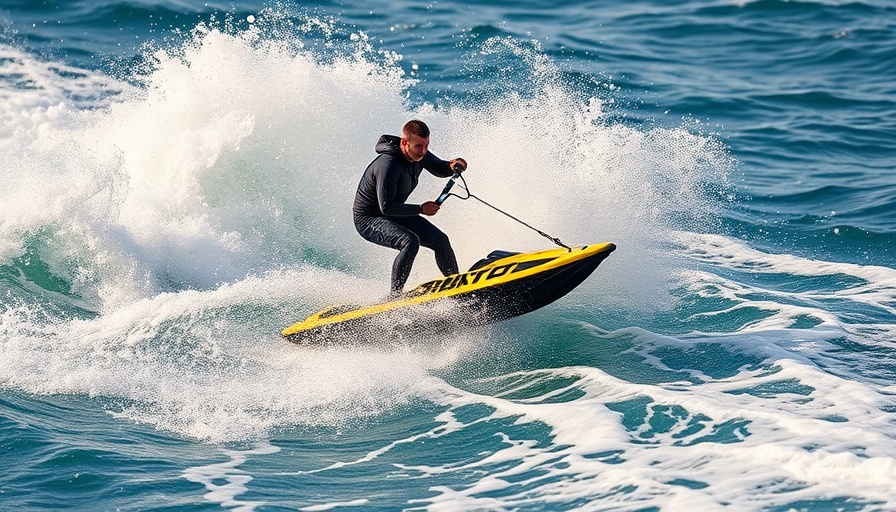
The Tragic Reality of Brain-Eating Amoebas
A recent health tragedy has unfolded in Missouri, highlighting the dangers of the rare yet deadly Naegleria fowleri—commonly known as the brain-eating amoeba. Confirmed by state health officials, a patient succumbed to the infection after being hospitalized in intensive care. This distressing news serves as a stark reminder of the often-overlooked risks associated with water sources, particularly during the peak swimming season in the hotter months.
Understanding Naegleria Fowleri: A Rare Threat
This amoeba is not as common as it may sound, causing infections in the human brain primarily when contaminated water enters through the nose. According to the Centers for Disease Control and Prevention (CDC), there have only been about 154 known infections in the United States from 1962 to 2021, but the outcomes are often fatal, making awareness critical.
Symptoms and Immediate Actions to Take
Symptoms of Naegleria fowleri infection can appear within one to two weeks of exposure and may include severe headache, fever, nausea, and a stiff neck. As the infection progresses, it can lead to confusion, seizures, and ultimately death. Understanding these symptoms can empower individuals, especially those over 55, to seek immediate medical attention if they believe they might have been exposed.
The Risk Factors and the Importance of Awareness
While Naegleria fowleri infections are rare, they are typically linked to warm freshwater environments such as lakes and hot springs. Increased awareness among swimmers, particularly the elderly and those with weakened immune systems, is paramount. It is essential to take precautionary measures, such as avoiding swimming in warm freshwater during high temperatures when the risk of exposure increases.
Real Stories: The Human Impact Behind Health Statistics
Behind each infection statistic lies a personal journey. For families affected by Naegleria fowleri, the emotional toll can be devastating. Many recall lost opportunities, unrealized dreams, and the joy ripped away by this cruel disease. These stories highlight the need for community education and support for those facing such health crises.
Preventative Measures and Safe Practices
To safeguard against Naegleria fowleri, it is crucial to adopt preventive measures when participating in water-related activities. Advanced education on safe swimming practices, including avoiding water disturbances and refraining from diving or jumping into warm freshwater lakes, can immensely reduce risk. Regular community outreach initiatives can also serve to raise awareness, helping to protect vulnerable populations in regions like Louisiana, where warm waters are prevalent.
Conclusion: Increased Vigilance Is Key
The recent fatality from a brain-eating amoeba infection in Missouri is not just a statistic; it’s a wake-up call for those over 55 living in Louisiana and beyond. By understanding the risks and sharing knowledge, communities can better protect themselves. It is vital to stay informed, vigilant, and proactive about health issues that may seem distant but pose a real threat in our everyday lives. Let's change this narrative with awareness and self-care!
For those interested in keeping up with the latest health news and ensuring their well-being, consider subscribing to local health alerts and community health resources.
 Add Row
Add Row  Add
Add 



Write A Comment